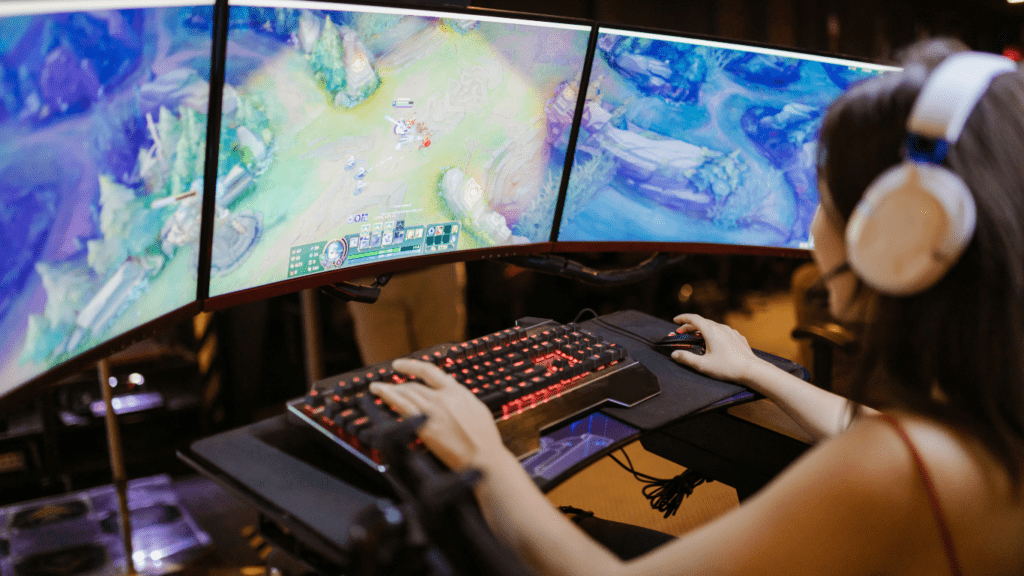Understanding Crowdfunding in Gaming
Crowdfunding has become a pivotal force in the gaming industry. It empowers indie developers to finance their projects independently.
Benefits of Crowdfunding for Game Developers
Crowdfunding offers numerous advantages:
- Creative Freedom: Developers fund projects without traditional publishers, maintaining complete creative control. For instance, “Undertale,” funded on Kickstarter, resulted in a unique game.
Community Engagement: Developers can engage with their audience early. Games like “Shovel Knight” thrived due to strong community backing and feedback during development. - Market Validation: Game ideas receive immediate market validation based on backer interest. Projects like “Broken Age” showed there was a demand even before full-scale development.
- Financial Risk Reduction: Developers secure upfront funding, reducing financial risks significantly. Campaigns like “Divinity: Original Sin 2” garnered substantial funds, minimizing financial strain.
Challenges in Crowdfunding
Despite its benefits, crowdfunding poses certain challenges:
- Unfulfilled Expectations: Many projects fail to meet backer expectations. The game “Godus” fell short of what was promised, leading to backer dissatisfaction.
- Financial Mismanagement: Poor financial management can derail projects. “Mighty No. 9” faced financial issues despite raising substantial funds, impacting development quality.
- Time Overruns: Delays are common, often frustrating backers. “Star Citizen” has faced numerous delays, causing concern among its supporters.
- Marketing Costs: Significant marketing is essential to attracting backers, which can be expensive. Campaigns require a well-thought-out marketing strategy to succeed.
By understanding these benefits and challenges, developers can better navigate the complexities of crowdfunding in gaming.
Economic Success Stories in Gaming Crowdfunding
Crowdfunding has produced some notable successes in the gaming industry, demonstrating its potential as an alternative funding method.
Case Study: Successful Indie Games
Several indie games have significantly benefited from crowdfunding. “Undertale” raised over $50,000 on Kickstarter, which far exceeded its initial goal of $5,000.
This success allowed creator Toby Fox to produce a critically acclaimed game that sold over 1 million copies.
Another example, “Shovel Knight,” managed to secure $311,502 from backers, leading to multiple expansions and crossovers with other franchises.
“Divinity: Original Sin 2” achieved more than $2 million in crowdfunding, enabling Larian Studios to create a game praised for its depth and quality, selling over 2 million copies within the first year of release.
Impact on Gaming Industry Growth
Crowdfunding has facilitated growth in the gaming industry by democratizing funding. Indie developers find it easier to enter the market without reliance on traditional publishers.
This has led to a more diverse range of games, catering to niche audiences and fostering innovation. Additionally, it encourages community engagement as backers feel directly involved in a game’s development.
Economic success in crowdfunding campaigns boosts confidence in indie games, attracting more talent and investment into the sector.
Common Pitfalls in Crowdfunding for Games
Crowdfunding has created great opportunities for indie game developers, but there are significant pitfalls to navigate.
Financial Risks and Failures
Crowdfunded gaming projects often face financial uncertainty. Developers may underestimate their budget needs, leading to insufficient funds to complete the game.
For instance, “Godus” raised over $700,000, yet failed to meet its development promises, leaving backers disappointed. Even successful funding doesn’t guarantee financial stability.
Development delays can deplete resources, as seen with “Mighty No. 9,” which delayed its release multiple times despite raising over $3.8 million. These financial missteps can turn promising projects into frustrating failures.
Managing Backer Expectations
Communication lapses often create significant issues in crowdfunded projects. Developers might overpromise and underdeliver, leading to dissatisfaction among backers.
For example, “No Man’s Sky” faced backlash for not delivering on its ambitious promises during the initial launch. Regular updates and realistic timelines are essential.
Ignoring backer feedback can also damage developer credibility and future funding potential. Properly managing expectations helps build trust and ensures a more successful crowdfunding campaign.
Strategies for Successful Crowdfunding Campaigns
Building a successful crowdfunding campaign requires strategic planning and effective engagement with backers.
Planning and Communication Best Practices

Proper planning lays the foundation for crowdfunding success. Create a detailed project plan encompassing budget allocations, timeline projections, and stretch goals.
Clearly communicate these elements in your campaign to build trust.
- Budget Allocations: Break down costs into categories like development, marketing, and rewards. Share this breakdown with potential backers to demonstrate financial responsibility.
- Timeline Projections: Outline key milestones and expected completion dates. Adjust timelines for realistic benchmarks to manage backer expectations.
- Stretch Goals: Offer additional features or content if funding exceeds the initial goal. Clearly explain how these funds will enhance the project to incentivize higher pledges.
Engaging Your Audience Effectively
Engaging backers throughout the campaign creates a loyal community. Utilize multiple channels like social media, forums, and email newsletters for maximum reach.
- Social Media: Regularly update campaign progress and share behind-the-scenes content. Use platforms like Twitter, Facebook, and Instagram to reach a broad audience.
- Forums: Participate in relevant online communities like Reddit and gaming forums. Engage in discussions and share campaign updates to attract interested gamers.
- Email Newsletters: Maintain a mailing list for direct communication with backers. Provide exclusive insights and updates, fostering a sense of inclusion and commitment.
Effective planning and active engagement are crucial for crowdfunding success in the gaming industry.


 is a key contributor to Luck Lounge Land, bringing her expertise in psychology and behavioral analysis to the platform. Her work focuses on the psychological aspects of gambling, helping users understand player motivations and decision-making processes. Morgana’s well-researched articles make her a respected voice in the community.
She also contributes to the site's 'Game Theory Academy,' developing modules on strategic thinking. Outside of her professional work, Morgana enjoys studying the latest trends in casino games and behavioral research. Her passion for the field and engaging writing make her a valuable asset to the Luck Lounge Land team.
is a key contributor to Luck Lounge Land, bringing her expertise in psychology and behavioral analysis to the platform. Her work focuses on the psychological aspects of gambling, helping users understand player motivations and decision-making processes. Morgana’s well-researched articles make her a respected voice in the community.
She also contributes to the site's 'Game Theory Academy,' developing modules on strategic thinking. Outside of her professional work, Morgana enjoys studying the latest trends in casino games and behavioral research. Her passion for the field and engaging writing make her a valuable asset to the Luck Lounge Land team.
